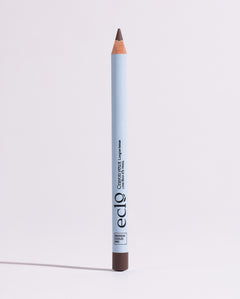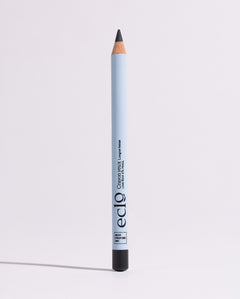Organic" cosmetics must contain a minimum percentage of organic raw materials, but a so-called "organic" formula may contain a very low percentage of organic ingredients. So prefer organic products with labels to ensure that the organic is certified and that the product is truly respectful of your skin and the environment.
Each organic label has its own specifications, but there are some common standards: absence of mineral oil, GMOs, synthetic fragrances and colorants, PEG, phthalates, silicone, sodium, and nanoparticles in certain sun creams, as well as environmentally polluting materials such as pesticides, which are excluded from the formulation. To date, certified organic products represent only 4.5% of the cosmetics market.
Ecocert

Ecocert is one of the leading organic farming certifiers. It was a pioneer in the development of standards for ecological and organic cosmetics. The charter of this inspection and certification organization is "at the service of man and the environment". In particular, it certifies the Cosmos Natural and Organic labels.
This is why you may see the ECOCERT COSMOS ORGANIC or ECOCERT COSMOS NATURAL logo. You may also see the same logo, but with the certifier Bureau Veritas.
Cosmebio

The purpose of the Cosmebio association is to federate the players in the organic cosmetics industry.
To bear the Cosmebio label, a product must have an organic formula certified by Ecocert and Qualité France. Above all, therefore, it is a logo that consumers can easily recognize on the shelf, and which tells them that the organic product is trustworthy, both in terms of its composition and the brand's overall approach: ethical sourcing, ecological packaging, responsible marketing, just as a Cosmos product is by Ecocert.
You can thus see the "Cosmebio Cosmos Organic" or "Cosmebio Cosmos Natural" logo.
Cosmos Organic and Natural

Since January 1, 2017, a single "Cosmos" label has appeared on certified organic products on the European continent.
Initiated by five European associations and certification bodies in 2009, Cosmebio, BDIH, Ecocert, ICEA, and Soil Association, this new organic label Cosmos organic label aims to harmonize the various cosmetic products marketed in Europe, offering consumers identical guarantees from one country to the next. Compliance with the standards is monitored by independent third-party organizations: Bureau Veritas and Ecocert.
A highly demanding label that can be used internationally
The aim of the label is to promote the use ofcosmetic ingredients fromorganic farmingand to use production and transformation processes that are that respect the environment and human human healthand to integrate and develop the green chemistry" concept which involve :
- - Using production and transformation processes that respect the environment and human health;
- - Promoting responsible use of natural resources;
- - Respecting biodiversity;
- - Guaranteeing the absence of petrochemical ingredients: parabens, phenoxyethanol, synthetic fragrances and colorants;
- - Have a biodegradable formula;
- - Guarantee the absence of GMOs;
- - Eco-responsible packaging: recyclable or better.
COSMOS offers two levels of certification:
COSMOS ORGANIC The most demanding on the market: it guarantees that at least 20% of the total product must be organic (10% for rinse-off products, lotions and products containing at least 80% minerals or ingredients of mineral origin); 95% of ingredients must come from agriculture or aquaculture, and must be organic; Certain ingredients, such as alcohol, must be organic. |
COSMOS NATURAL No minimum requirement for organic ingredients, but at least 95% of ingredients must be of natural origin. |
Natrue

The Natrue label, created in 2008, provides a guarantee for consumers and producers by setting a demanding standard. It guarantees that only natural and organic cosmetics meeting the highest levels of natural and organic ingredients can be certified Natrue. This label certifies that the product has been controlled at every stage of production, from raw materials to bottling.
Natrue requirements
All the requirements for certifying a cosmetic product according to Natrue criteria:
- - Description of origin and authorized manufacturing processes to classify substances as natural, nature-identical or naturally derived;
- - The organic proportion requirement for certification as an organic cosmetic;
- - Product formulation requirements for minimum levels of natural substances and maximum levels of naturally-derived substances according to product category;
- - Open lists of naturally derived substances and identical substances approved for use in natural cosmetics;
- - Criteria for packaging and support materials;
- - Environmental and ethical criteria
NATRUE offers two levels of certification:
ORGANIC COSMETICS At least 95% of natural ingredients come from controlled organic cultivation and/or controlled wild harvesting. |
NATURAL COSMETICS Natural raw materials are preferably organic. |
Demeter

Demeter is a label that is not reserved for the cosmetics industry. Raw materials, whether animal or vegetable, must come from biodynamic or organic agriculture.
It prohibits the use of petroleum-derived ingredients, nanoparticles and aggressive, irritating processes.
Their vision is part of a holistic approach far removed from greenwashing, taking into account quality of raw materials and water used, ingredient-friendly transformation processes, waste management, packaging materials and social commitment of the certified cosmetics company. Unfortunately, this label is still little known in France for cosmetics.
Nature et Progrès

Nature et Progrès is an international, independent certification body for the food industry and other sectors such as cosmetics.
The oldest certification body on the market, it has been present since 1964.
It brings together professionals and consumers to defend an agriculture that respects living organisms and the preservation of ecology and the environment.
Soil Association organic

Label developed in the UK for food and cosmetics. The Soil Association checks the formulas and labels of the various products it markets, and inspects manufacturers' production plants every year. All packaging must also be environmentally friendly.
Ecocert, ICEA, BDIH

ICEA and BDIH are the Italian and German equivalents of Ecocert.
At Eclo, we have chosen the Cosmos Organic label by Ecocert to guarantee product safety for your skin and the environment, natural and biodegradable products, responsible use of natural resources and compostable packaging.
 |
 |



